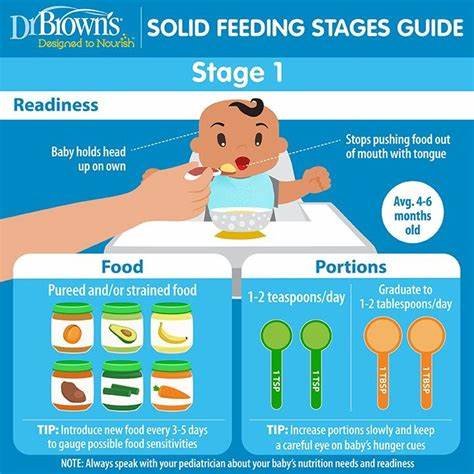Good nutrition is vital for your baby’s growth and development. Feeding your baby the right food at the right time ensures they get essential nutrients. Each stage of their early years comes with specific nutritional needs. Here’s a guide to help you navigate feeding your baby through these important stages.
1. Birth to 6 Months: Breastfeeding and Formula Feeding
For newborns, breast milk or formula is the sole source of nutrition. Breast milk provides a perfect mix of nutrients and antibodies to support your baby’s health. Formula is also a healthy option and meets the dietary needs of infants.
Tip: Feed your baby on demand, typically every 2–3 hours. Watch for hunger cues like sucking fists or fussiness.
2. 6 to 8 Months: Introducing Solid Foods
At six months, most babies are ready to try solid foods alongside breast milk or formula. Begin with iron-rich options like single-grain cereals, pureed vegetables, and fruits.
Tip: Introduce one new food at a time to monitor for allergies.
3. 8 to 12 Months: Exploring Textures
As your baby grows, they can handle more varied textures. Include soft finger foods like banana slices, cooked carrots, and small pieces of pasta. Continue to offer breast milk or formula.
Tip: Encourage self-feeding with age-appropriate utensils to develop motor skills.
4. 12 Months and Beyond: Transitioning to Family Foods
By one year, your baby can enjoy most family meals, provided they are soft, bite-sized, and low in salt and sugar. Whole milk becomes a key part of their diet if breastfeeding decreases.
Tip: Provide a variety of foods to expose them to different flavors and nutrients.
Feeding Tips for Every Stage
- Stay Hydrated: Babies under six months get hydration from milk. After that, small amounts of water can be introduced.
- Avoid Certain Foods: Don’t give honey, whole nuts, or foods high in salt and sugar during the first year.
- Encourage Variety: Offer diverse foods to promote a balanced diet and prevent picky eating habits.
- Be Patient: Babies may reject new foods at first. Repeated exposure often helps them accept it over time.
The Importance of Proper Nutrition
Nutrition shapes your baby’s future health and development. A balanced diet fosters strong bones, a robust immune system, and cognitive growth. Starting healthy habits early sets the stage for lifelong wellness.
Dealing with Feeding Challenges
Many parents face challenges like picky eating or food allergies. Stay calm and consistent, and consult your pediatrician for guidance. Introducing diverse foods early helps minimize issues later.
Conclusion
Feeding your baby is a journey that evolves with their growth. From breastfeeding to family meals, each stage plays a crucial role in their development. By providing nutritious options and adapting to their needs, you can give your child the best start in life.











